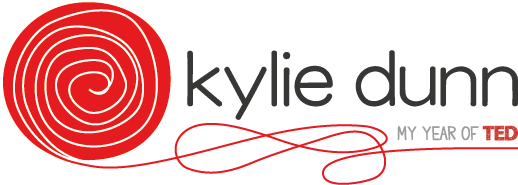Procrastination, Failure and Other Elements of Success
Failure and success is the focus today. I love TED Talks that challenge the 'accepted' truth of a situation. Recently, I have enjoyed two new talks that fit the bill.
Becoming an 'Original'
A couple of weeks ago, TED released Adam Grant's talk: The surprising habits of original thinkers. Adam's talk focuses on three characteristics of an 'Original' - he has written a book on the topic as well. He outlines the three characteristics, and the importance of embracing these skills:
- The people who race to finish, or wait until the very end do not have creative ideas. Originals hit the sweet spot, where you let your brain start working on a task, and then stop! This allows your brain to incubate ideas and connect thoughts with different concepts already in your brain. Quick to start... slow to finish!
- They feel doubt, like everyone else, but... it is idea-doubt, not self-doubt! They have the confidence to doubt the idea, and try to find a better way of doing it. This allows them to see the world differently. Don't put the doubts aside, explore the doubt and find a way to resolve it.
- They are afraid of failing to try. I learned this during My Year of TED, and I've written about it quite a bit. In time, we will regret the things we didn't try rather than the choices we made for ourselves. Bad ideas and failure are part of the process of innovation. The more you try the greater your chances are of succeeding with a great idea.
Celebrating failure
TED have also recently put up Astro Teller's talk on The unexpected benefit of celebrating failure. This one was in the opening session of TED, which we went to see at the cinema over a month ago. Astro works for X (previously known as Google X), which is the innovation engine of Google. We're talking the big innovations here, like autonomous cars.He explains, the culture of the organisation allows them to approach innovation in a special way. Ideas are not protected from reality - instead, employees strive to try to break their innovation as quickly as possible. Now this is a great mindset, because if an idea is not going to work, you want to know that early in the project. But how many of you have worked on a project with an obvious fault that everyone kept ignoring or putting off to resolve at the end? I know I have, many times. These are the elephants in the room, we seem to think will fix themselves once everything else is complete.At X they address the elephants first. If they cannot solve them, they kill the project, or at least shelve it until another innovation is complete. This is a fantastic approach, which must be so freeing to experience. Additionally, they are rewarded for killing their ideas, as much as when something is successful.That culture of celebrating the failures is something I think a lot of other organisations could benefit from. I'm not saying every failure is equal - particularly if they come from lack of motivation, or some other performance issue. But I've worked on many projects where a senior person bought a bright, shiny toy for the business, determined to make it work. And even when it was obviously wrong, we had to ignore the elephants and implement anyway. All because a senior non-expert listened to the product vendor, and couldn't be told. When egos get involved, people are seldom allowed to fail easily.A process that requires you to address all obstacles at the beginning, would give the experts a legitimate voice. They wouldn't be seen as 'blockers' of innovation. Rather, they would be the people who are working hard to challenge the project, to save money and heartache.
What do these talks contribute?
I decided to do a post about these talks together, for the obvious alignment in their ideas. I spent 13 years in government roles, and I still work a bit with government agencies. I get why government can't operate in the X model of innovation, but they are too old-school in their approach. The approach of failure as always bad, and should be avoided at all costs.When I combined the ideas of these talks, I get the following idea of an innovator/creator:
- have the courage to try even your bad ideas out
- embrace your idea doubts, and acknowledge all your elephants
- allow time for procrastination to increase the chance of creative solutions
- when there is no solution, embrace the failure and start on the next idea.
At an individual level, you must be brave; put your ego aside; avoid self-doubt and recrimination; learn from failure.What do you think it means for an organisation? And do you work for an organisation that has these attributes?

